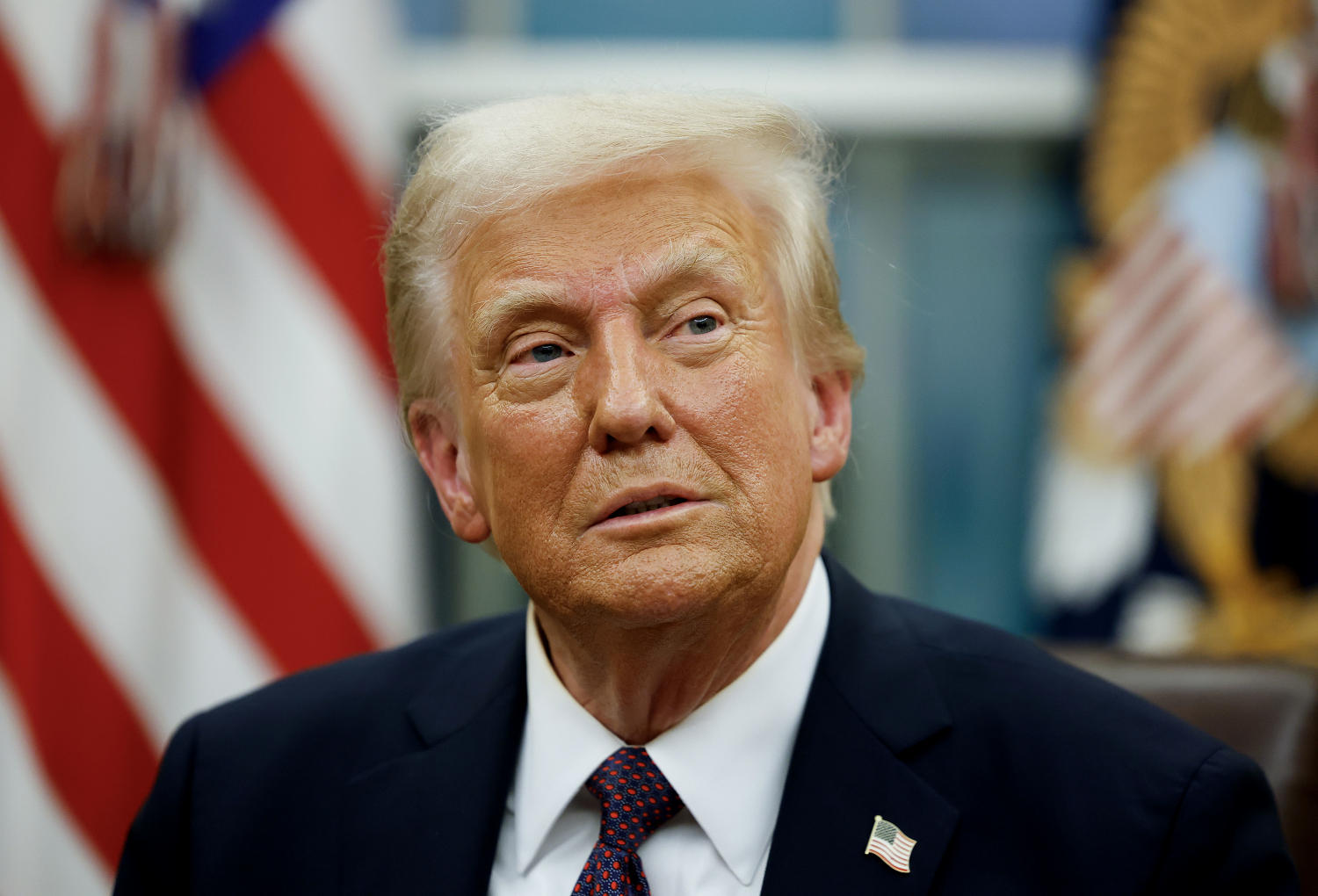
Donald Trump has repeatedly used rhetoric that reflected an authoritarian perspective, but the Republican president broke new ground this past week, publishing an unsubtle message to multiple social media platforms: “He who saves his Country does not violate any Law.”
As the day progressed, the official White House social media account also amplified the message, and Trump pinned the missive to the top of his social media feed, seemingly as a way to demonstrate its significance. For good measure, roughly 24 hours later, Trump promoted another online item, this time featuring a portrait of Napoleon Bonaparte with a quote sometimes attributed to him: “He who saves his country violates no law.”
The president did not elaborate on what he perceived as the significance of the phrase, but at face value, the plain meaning of the statement — or more accurately, statements — was that presidents are incapable of committing crimes just so long as they believe they’re “saving” their countries. As we’ve discussed, it’s a sentiment embraced by tyrants for generations, each of whom have insisted that they cannot be expected to lead if bound by the limits of laws and legal institutions.
Four days later, the president started referring to himself as a monarch. NBC News reported:
President Donald Trump declared himself “king” on Wednesday as he celebrated his administration’s bid to end federal approval of New York’s “congestion pricing” — an auto toll instituted last month to raise money for the region’s aging mass transit system. … Trump celebrated the potential end to congestion pricing and appeared to liken himself to royalty.
“CONGESTION PRICING IS DEAD. Manhattan, and all of New York, is SAVED. LONG LIVE THE KING!” the Republican wrote on social media.
Soon after, an official White House account not only echoed the president’s online statement, it also released a portrait showing a grinning Trump wearing a crown.
To be sure, political hyperbole is nothing new, and responsible observers should be able to tell the difference between online trolling and more meaningful official declarations.
But amid a discussion about a possible authoritarian movement in contemporary American politics, it has become far more difficult to shrug off these incidents as trivial antics. The Washington Post’s Aaron Blake wrote a compelling analysis a few days ago, contextualizing the broader political landscape.
“Trump isn’t just posting Napoleon quotes,” Blake wrote. “He’s asserting an extremely broad version of presidential power, often violating the law in the process, and daring the courts to stand in his way. His top allies and his vice president are talking openly about defying court orders (it’s not clear whether the administration deliberately did so in the case last week). His Justice Department stands credibly accused by even would-be allies of disregarding the law for Trump’s political goals in the case of New York Mayor Eric Adams. And many Republicans have advanced a view of Trump’s mandate that basically amounts to this: Trump won, so what he says, goes.”
The analysis added, “Trump has certainly tested the bounds of our democracy before — not just rhetorically, but with his actual actions — but never like this. And to inject a quote like that into a moment like this is certainly a choice.”
It was a day later when the president started referring to himself as a “king” and the White House started promoting an image of Trump with a crown.
Imagine if the partisan situation were reversed. Imagine it were a Democratic president who, during his campaign, issued a written statement musing about the “termination” of the Constitution in pursuit of his baseless election conspiracy theories. Imagine that same Democrat soon after said presidents must be allowed to ignore laws that get in their way and take actions that “cross the line.” Around the same time, that same hypothetical Democrat repeatedly talked about his desire to establish a Day 1 “dictatorship,” which he said would give him temporary authority to pursue his priorities without checks and balances.
Then imagine, after the election, that Democrat took power, expressed indifference toward the rule of law, positioned himself above the law, issued executive orders concentrating new authorities under his control, and referring to himself as a monarch.
Do you suppose Republican officials and conservative media outlets would sit idly by, unconcerned by such posturing? Or would they tell the public that the United States was in the midst of a constitutional crisis?
This post updates our related earlier coverage.



